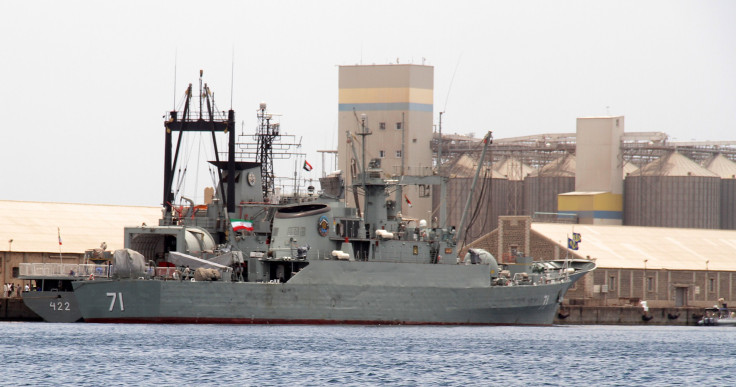Iran-Saudi Arabia Conflict: Cold War Tensions Rise As Iranians Warn Saudi Navy To Stay Out Of Their Waters

Iran reportedly warned Saudi Arabia Wednesday to stay out of its waters while conducting naval exercises in the Persian Gulf, a sign of elevated tension between the two Middle East powers.
The Saudis began the exercises Tuesday in the Gulf and the Strait of Hormuz, which cuts off the rest of the Persian Gulf from other vessels and is considered one of the most important routes for oil shipping in the world. Roughly 17 million barrels per day, or 30 percent of oil shipped by sea, passed through the strait in 2013.
The warning from Iran’s Revolutionary Guard and the exercises come only days after Yemen-based Houthi rebels, reportedly backed by Iran, fired off four rockets and almost sank a United Arab Emirates ship, according to Fox News.
Iran, engaged in heavy tensions with Saudi Arabia over the war in Syria and conflict in Yemen, said the exercises are endangering a region that’s already been a hotbed of war for decades, Reuters reported.
"The Revolutionary Guards naval forces believe this war game is mainly to create tension and destabilize the Persian Gulf," the IRGC said in a statement to Tasnim news agency.
After the UAE auxiliary ship was nearly sunk, but without any reported fatalities or injuries to the crew, the United States Navy responded by sending three warships near Yemen’s southern coast, defense officials told Fox News.
The U.S., an ally of Saudi Arabia’s but also a recent signatory on a new nuclear non-proliferation deal with Iran earlier this year, sent two guided-missile destroyers and a floating stage ship to the Bab al-Mandab Strait, a connector between the Red Sea and Gulf of Aden.
Away from the military stage, Iran, with the world's largest number of Shia Muslims, and Saudi Arabia, home of Islam’s most sacred ground Mecca and a Sunni majority, recently engaged in a war of religious words last month while Muslims around the world undertook the annual hajj pilgrimage, according to the New York Times.
Tensions between the two Middle East powers, stemming largely from their stances on Islam, have increased this year as they engage in power plays and perceived proxy wars in Yemen and Syria to control the region. Earlier this year, Saudi Arabia ended relations with Iran when a raid was conducted at its embassy in Tehran in January after the Saudis executed a Shia leader, Al-Jazeera reported.
The two nations have also sparred over who should plan the annual hajj, particularly after last year's stampede in Mina, just outside of Mecca. During the 2015 pilgrimage, the Associated Press reported more than 2,700 people were killed in the stampede and Iran blamed the Saudi royal family, which acts as the main organizer of the hajj, for mismanaging the holy event. Iran has said it wants an independent body to organize hajj, something the Saudis have rejected.
© Copyright IBTimes 2025. All rights reserved.





















